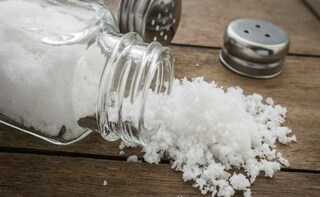Diets high in sodium may be a risk factor in the development of multiple sclerosis (MS) by influencing immune cells that cause the disease, a new study in mice suggests. Researchers said that although the study does implicate salt intake as a risk factor, it is important to note that dietary salt is likely just one of the many environmental factors contributing to this complex disease, and very much influenced by one's genetic background.(What Happens When you Have Too Much Salt in Your Diet?)
Advertisement
Advertisement
For the latest food news, health tips and recipes, like us on Facebook or follow us on Twitter and YouTube.
Advertisement
